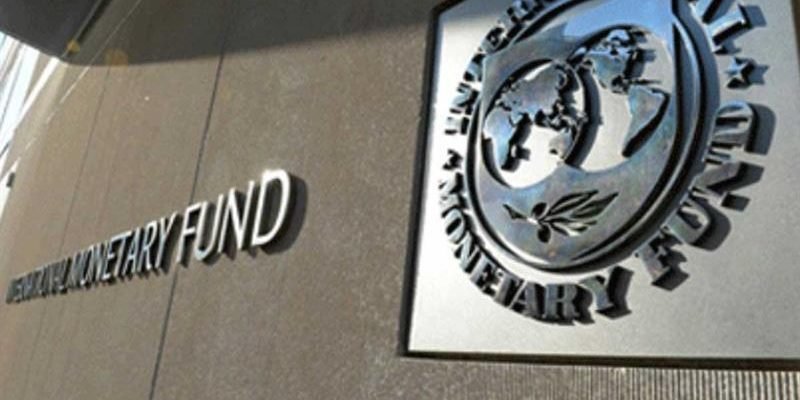As per its updated report on the Middle East and Central Asia region’s economic outlook, this level is the highest Egypt has seen since 2000.
The IMF projected Egypt’s total external gross debt to jump to 50.2 percent of GDP, up from 37.3 percent in 2022, before decelerating to 43.4 percent in 2024. This is the highest level recorded in over 20 years.
The repercussions of the Russian-Ukrainian conflict has severely impacted the Egyptian economy, resulting in the flight of about $25 billion in hot money from the local market as well as a notable shortage in the hard currency, chiefly the US dollar.
The report projects real GDP growth in the emerging markets and middle-income economies in the Middle East and North Africa (MENA) to decline to 3.4 percent in 2032, down from 5.1 percent seen in 2022 to 3.4 percent.
However, the report also predicts a gradual acceleration of real GDP growth for the region’s emerging markets and middle-income economies to 4.4 percent in 2024.
🆕 Our 2023 growth forecasts for the Middle East & North Africa:
🇩🇿: 2.6%
🇧🇭: 3.0%
🇩🇯: 4.0%
🇪🇬: 3.7%
🇮🇶: 3.7%
🇮🇷: 2.0%
🇯🇴: 2.7%
🇰🇼: 0.9%
🇱🇾: 17.5%
🇲🇷: 4.4%
🇲🇦: 3.0%
🇴🇲: 1.7%
🇶🇦: 2.4%
🇸🇦: 3.1%
🇸🇴: 2.8%
🇸🇩: 1.2%
🇹🇳: 1.3%
🇦🇪: 3.5%
🇾🇪: -0.5% pic.twitter.com/LrAu4u7DAd— IMF Middle East & North Africa (@IMFinMENA) May 3, 2023
The report anticipates Egypt’s real GDP growth to slow down to 3.7 percent in 2023 from 6.6 percent in 2022 due to tight financing conditions, past exchange rate depreciation, high inflation eroding households’ purchasing power and weak external demand growth.
The report highlights that sustained implementation of policy and structural reforms, particularly under the IMF-supported programme for Egypt, will aid in gradually recovering its real GDP growth.
Egypt is currently engaged in an Extended Fund Facility (EFF) programme with the IMF that allows Egypt to receive a loan of $3 billion through FY2025/2026. The first review of the programme, which has been pushed to the end of June instead of 15 March, will allow Egypt to secure the second tranche of the loan worth $347 million following approval by the IMF’s Executive Board.
The report stated that headline inflation in the MENA region showed signs of peaking at the end of 2022, although it remains persistently high in the region’s emerging markets and middle-income countries as well as low-income economies.
The report explained that in 2022, headline inflation continued to trend upward in most emerging markets and middle-income countries in MENA, such as Egypt, Morocco, Pakistan and Tunisia. This was partly due to the impact of past exchange rate depreciations and persistently high food prices, but also due to broadening price pressures, including on services, as indicated by the increase in core inflation amid loose monetary policy in countries such as Egypt, Pakistan and Tunisia.
Since the onset of the war in Ukraine, Egypt has depreciated the Egyptian pound against the US dollar three times, causing it to lose over 75 percent of its value against the greenback since March 2022. Now the US dollar is trading for almost EGP 31 in all banks, and more than EGP 36 in the parallel or black market.
Egypt has been also experiencing an inflationary wave since March 2022 that has resulted in double digit figures.
According to latest calculations released by the Central Agency for Public Mobilisation and Statistics (CAPMAS), Egypt’s annual headline inflation rate kept accelerating in March to reach 33.9 percent, up from above 32 percent posted in February and significantly higher than the 12.1 percent recorded in March 2022. This was mainly due to the significant increases in food and service prices.
The report emphasised the use of monetary policy in the region as a key tool to curb the rising inflation.
However, it also noted that policy interest rates in Egypt, Tunisia and Pakistan were below model-based estimates of natural rates, indicating that monetary policy stances were still accommodative at the end of 2022.
It added: “Higher inflation was the main factor in containing public debt in most MENA’s emerging markets and middle-income economies. Debt ratios declined slightly in Egypt and Jordan as higher nominal GDP growth more than offset interest costs.”
Since March 2022, the Central Bank of Egypt (CBE) has hiked key interest rates by a total of 10 percent (1000 bps) in a bid to curb inflation, with banks issuing high-yield certificates of deposit for the same purpose. The CBE’s Monetary Policy Committee is scheduled to convene on 18 May to review the key interest rates amid the latest economic developments globally and locally, especially the latest inflation rates.
The CBE and CAPMAS are expected to release April’s inflation figures next week.
The IMF’s report projected MENA’s GDP growth to weaken in 2023 as tighter monetary and fiscal policies to safeguard macroeconomic stability dampen domestic demand in emerging markets and middle-income countries.
Accordingly, the report expected growth in the MENA region to decelerate from 5.3 percent in 2022 to 3.1 percent in 2023 before bouncing back slightly to 3.4 percent in 2024.
Meanwhile, the report projected inflation to be more persistent in MENA’s emerging markets and middle-income economies than previously expected.
Short link:










